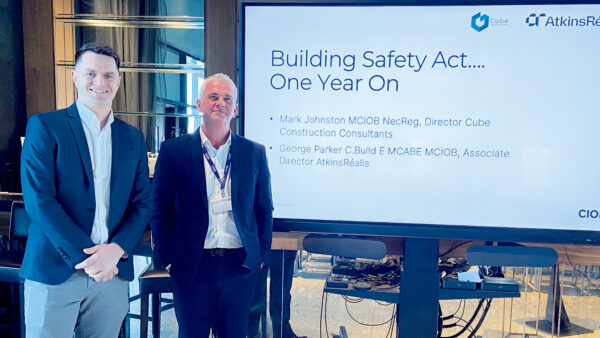
This month’s contract clinic question comes from a frustrated contractor whose client insists practical completion hasn’t been reached. Laura Lintott responds.
The question
We have a project which we believe has reached practical completion under the contract, but our client is adamant it hasn’t. There is nothing left to do but a final builder’s clean – what can we do?
The answer
Practical completion (PC) is a topic that affects several different parties to a construction project. Sadly though, it can lead to arguments over what PC is, and whether it’s been achieved. This sounds like the destination for your question: what is PC, and how can we avoid disputes?
There is no statutory definition in law of what PC is. One could say that it is when works under a building contract are complete, except for minor defects. It could also be said that it is when a building project is capable of beneficial occupation and use. Or it may be after certification by an architect or contract administrator.
The existence of latent defects cannot prevent PC. As for patent defects, there is no difference between an outstanding item and an item of defective work that needs remedying. Snagging lists can identify both types of items without distinction.
What the contracts say
Most standard forms of construction contracts leave the term PC undefined. JCT contracts give the contract administrator discretion to make a subjective judgement on the achievement of PC. NEC contracts are more prescriptive in what is required for the achievement of PC. Sometimes parties agree a bespoke definition that adds more complexity. This in turn can lead to conflict with other parts of the contract.
So we can see there is a lack of clarity as to when PC occurs. The certification of PC nonetheless acts as a trigger event for several parties.
As a contractor, you are likely to want PC certified as soon as possible. It will likely trigger the release of retention funds and limit your liability for liquidated damages. PC also passes responsibility for the site and the works to your employer.
Your employer may want to take possession as soon as possible to generate income or limit financial charges. However, they will not want the certification of PC where works are incomplete, unsatisfactory or if there is an absence of statutory approvals.
Funds, tenants and purchasers will typically require that other conditions are met before the obligation to complete arises. Tenants and purchasers may insist on inspecting the works before PC. They may want to make representations to the contract administrator about the state of the works. They may wish to refer the question of whether PC has occurred to an independent third party.
Ongoing obligations
A developer could be in a position where its contractor has handed back the site. All that remains is to deal with snagging, so the contractor is no longer liable for liquidated damages for delay. However, the tenant or purchaser may not yet be obliged to complete the lease or sale of the property. This leaves the developer stuck in the middle, having to deal with ongoing financial obligations, insurance of the works, site security and so on.
Whenever there is a dispute about whether PC has occurred, it is often not about works. More often it is driven by one of the parties seeking to avoid or delay the consequences of PC. While disputes about whether or when PC has been achieved are common, they can be avoided.
Dispute prevention measures include checking that the building contract is clear on when PC occurs. It is also advisable to keep a paper trail documenting acceptance of possession, partial possession or agreement for early access. As has been noted in this column before – records, records, records are key.
Crucial point
PC is a crucial point in time in a project when disputes can arise. Whether it has been achieved will depend on the nature of the works on your project and whether they have been substantially completed or are capable of use. It sounds from the description in the question that PC has been achieved, but negotiations can be difficult.
While it can be stressful, PC is also an exciting point in time when the true purpose of a project can start. However, it is always worth ensuring you understand the contractual terms relating to PC on your project before you start work. In the case of your question, it sounds as though PC should have been achieved, but much will depend on the detail of the contract and the specific issues holding up certification.
Laura Lintott is of counsel at Watson Farley & Williams.
Comments
Comments are closed.












Westminster Corp v Jarvis [1970] 1 WLR 637
The House of Lords decided (obiter) that, under a building contract, “practical completion” means the completion of all the construction work that has to be done. Practical completion does not mean that the works are free from latent (hidden) defects. The decision provides useful guidance on what constitutes practical completion of works under a building contract.
Do the clean!! Its amazing how much more finished the Works will look if its clean, and you have to do it anyway